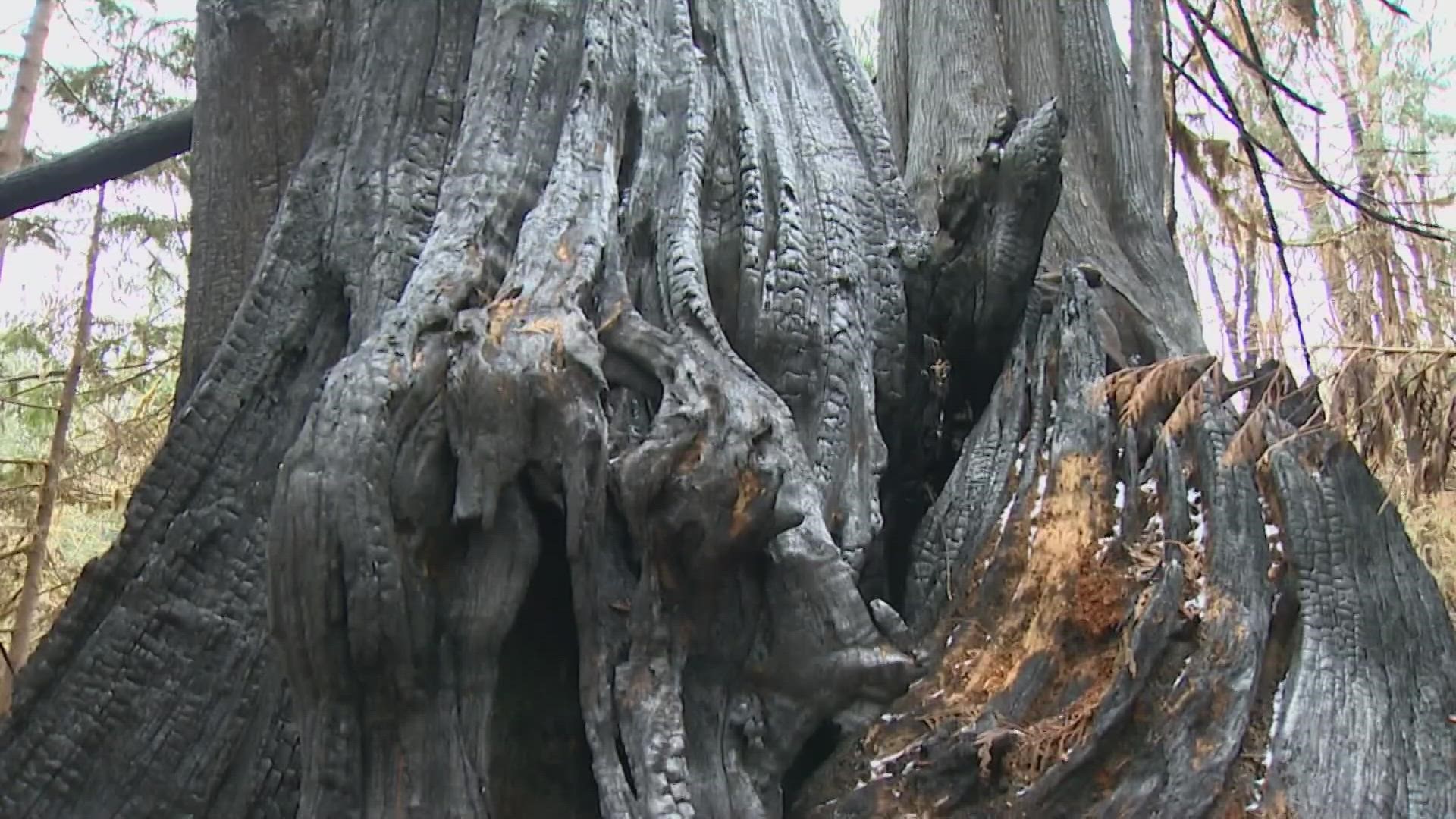OLYMPIA, Wash. — Washington lawmakers will weigh a bill that could put $12.8 million toward preparing for wildfires and adjusting to their impacts on the western side of the state.
Along with community resilience programs, "Cascading Impacts of Wildfire" legislation (HB 1578/SB 5611) would fund evacuation planning, smoke monitoring programs and response for post-fire risks such as landslides and debris flows.
Commissioner of Public Lands Hilary Franz said the bill was in response to an increasing number of wildfires in western Washington and the thick waves of smoke that became a fixture during the Bolt Creek Fire near Skykomish.
"We've known for awhile now that wildfire is growing across the state," Commissioner Franz said. "How can we educate, inform and get on the ground- home to home, neighborhood to neighborhood, and create community resilience at the community level?"
The Washington Department of Natural Resources runs a "Wildfire Ready Neighbors" program across eastern Washington, along with year-long pilots in Pierce, Thurston and Mason counties. New funding would make those permanent and expand to another five westside counties.
The bill would also provide funding for work to reduce health impacts of wildfire smoke to vulnerable populations, model post-fire risks and create evacuation plans for high-risk areas. The Bolt Creek Fire was close in proximity to homes -- underscoring the need for preparation and education.
"There's only one road in and one road out, and it is very challenging, so that's why the evacuation planning is going to be so key, building that evacuation resilience and getting used to it," Franz said. "No one is immune from wildfire danger in Washington state, whether it's fires right in their area- or the smoke that is obviously impacting all of us when our fires get so significant and so close to our homes."
As climate change fuels larger, more frequent fires, smoky summers will become more common and larger populations will be at risk, according to the Department of Natural Resources.
"As we see, fires are getting closer and closer to homes," Franz said. "The faster we can get in and help homeowners make their homes more resilient, the safer they're going to be during a fire."

